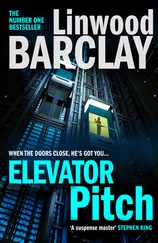About fifteen minutes after the younger woman joined Barbara, she got up to leave.
Chris took off his right glove so that the camera icon on his phone would work when he touched it with his finger. Barbara exited the restaurant. Chris hit the button and held it, firing off multiple shots as the unknown woman stood briefly, got her bearings, and started walking south. Chris lowered the phone as she crossed Fiftieth and hailed a cab. She got in, and the cab took off down Second.
Barbara stayed. She appeared to be ignoring her breakfast.
Chris wondered who the young woman might be. If Barbara’d had a Facebook page, Chris might have found a picture of her there, if she was a friend. But Barbara was not on Facebook. She had a substantial Twitter following, though. Just under thirty thousand. But Twitter was not typically where one posted photos of friends. It was for mouthing off, something Barbara did plenty of.
Five minutes after the young woman left, Barbara got up, paid the bill, and emerged onto the sidewalk. Would she head back toward home? Walk to the Manhattan Today office? These days, what with half the world working from home, there might not be much reason for Barbara to show up at an actual office.
She headed north. As she walked, she did the same thing she’d done earlier. She took out her phone. It was welded to her palm, Chris thought.
She glanced down at it as she crossed Fifty-First. Chris let out a derisive sigh. All these people, looking at their phones when they should be watching where they’re going. Getting hit by cars, walking head-on into other idiots who were also staring at their phones. There was a video on the news the other day of a woman falling into some open sidewalk cellar doors, the kind you saw all over the city to accommodate deliveries.
Barbara barely took her eyes off the device the whole next block, but somehow she knew there was a red light at Fifty-Second, and she stopped instead of stepping into the path of a panel truck.
Chris was only a few feet behind her. Close enough to hear her phone when it started to ring. A curious ringtone, at that. It sounded like someone tapping away furiously on an old manual typewriter.
Barbara put the phone to her ear. As the light changed, she continued walking north.
Chris couldn’t make out anything she was saying. But whatever the caller was telling her was serious enough to make Barbara stop dead in the middle of the sidewalk and listen.
Chris had to hit the brakes to avoid walking into her. He sidestepped around her and kept on walking. When he reached the next corner, he turned and looked back. Barbara was tucking her phone into her purse and stepping out into the street to hail a cab.
Shit.
He looked north and saw several available ones coming their way. Second Avenue ran only southbound, so the cabs were spread out across its width. One on the far side veered across, aiming for Barbara and cutting off several other vehicles in the process.
Chris waved and caught the attention of another cab driver. The car swerved toward him. By the time he got into the back of his taxi, Barbara was pulling away.
“Where to?” asked the driver, a heavily bearded man with one hand on the wheel and the other holding a half-eaten apple.
“That taxi right ahead? That picked up that woman? I’m going where she’s going.”
“Where’s that?” the driver asked.
“Don’t know. Just follow it.”
“Ah, like in the movies,” the driver said, taking one last huge bite of the apple, powering down his window, and tossing the core.
The miniscreen bolted to the back of the Plexiglas partition was playing some snippets from daytime TV. Chris made several unsuccessful attempts to mute it before giving up. He was thinking if he could get his hands on Barbara’s phone long enough to fiddle with the settings, he’d be able to track her location without having to chase after her.
Barbara’s cab was continuing straight on down Second. Past Forty-Second, past Thirty-Fourth, finally hanging a right on Twenty-Seventh. The cab went halfway down the block toward Third before it pulled over.
“Stop here,” Chris said when his own cab was about ten car lengths back.
He tossed a ten through the partition window and was out of the car before Barbara had exited hers. He pulled out his phone and pretended to look at it while Barbara settled up with her cabbie. She got out, walked a few doors west on the north side, stopped to study the building she was in front of, and went in.
Chris crossed the street so he could check out the address without standing directly in front of it.
Barbara had gone into a funeral home. Clappison’s Funeral Services, to be exact.
Arla grabbed a cab.
When the taxi was half a dozen blocks from her destination, it stopped dead, not going anywhere. Traffic was insane. Arla bailed and ran the rest of the way. She jogged Central Park three mornings a week, so she didn’t get winded, but she sweated through her work clothes. Glover had texted her the York Avenue address, and she got there before the mayor and his entourage.
Along the way, her mind went back to the brief meeting she’d had with her mother. It had gone pretty much as she’d expected. Maybe it would have been better to break the news to her about her new job in an email. Face-to-face, things had a way of getting unpleasant in a hurry.
Arla wondered if that awkwardness was what she’d wanted all along. To see the expression on her mother’s face when she told her whom she was going to be working for. To revel in her shock and disappointment. Of course, if that really was why Arla had told Barbara in person, it meant her mother wasn’t wrong suggesting Arla took the job just to get under her mother’s skin.
In the moments when Arla was honest with herself, she had to admit there was something to that. Arla had, to put it mildly, conflicted feelings about her mother. At some level, yes, she loved her. After all, she was her mother . And there were even times when Arla could understand what it must have been like for Barbara, to have found herself pregnant at such a young age, to not want to have to give up a career.
At least she didn’t abort me, Arla told herself in moments when she was inclined to be generous.
But then there were the other times, when she just didn’t give a shit about her mother’s feelings. She should have been there for me, each and every fucking day.
So yes, maybe she was sticking it to her mother. But the flip side of all this was: Should Arla have turned down a great opportunity just because it would make her mother unhappy? Didn’t she have her own life to live? Wasn’t she entitled to make her own choices? Arla had actually been concerned, when she’d applied, that her potential employer would make the connection. If they found out Barbara was her mother, they’d probably deny her the job. Would that have been fair?
She stopped thinking about all that when she reached the scene.
York Avenue was blocked off. There was no sense of pandemonium, but there were half a dozen FDNY vehicles, as many marked police cars, and two or three unmarked ones. There was one lone TV van, and not an ambulance in sight. Arla was guessing the scene had been busier earlier. A couple of hours must have gone by since the accident.
Flimsy police tape served amazingly well to keep people from entering the building. Without any official City Hall ID — she was hoping she’d have one before long — Arla wasn’t expecting anyone to let her pass. She’d have to wait for Glover, once he had arrived with his father and whoever else was coming, to see if she could get in.
Looking south down York she saw a black town car approaching. It stopped and Glover got out, followed by Mayor Headley. A woman Arla knew to be Valerie Langdon emerged from the other side. One of the news crews spotted their arrival and went charging in their direction. Arla expected the mayor to stop and say something for the cameras, but instead he made a path straight toward the building.
Читать дальше
Конец ознакомительного отрывка
Купить книгу
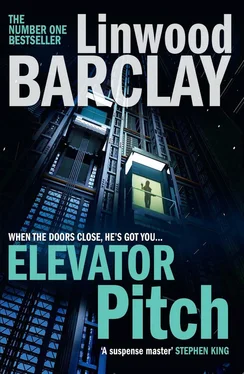


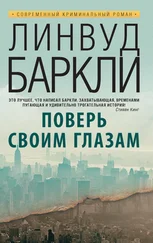

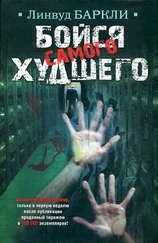

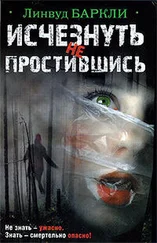
![Линвуд Баркли - Последний выстрел [litres]](/books/412435/linvud-barkli-poslednij-vystrel-litres-thumb.webp)


